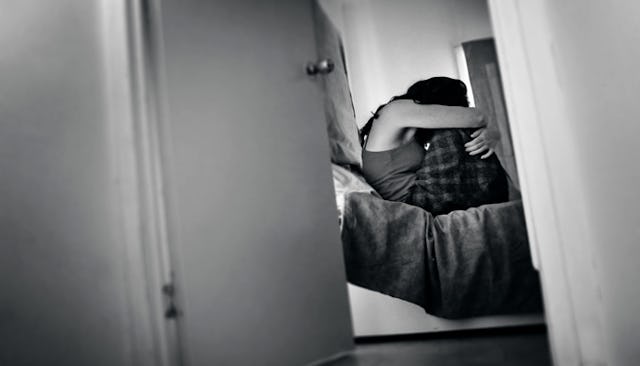The Breaking Point

A couple months ago I went a little crazy. I’m not saying that lightly. I mean I really started to lose it.
I’ve dealt with depression and anxiety since I was a teenager. What I once thought was merely teenage angst stuff turned out to be just a part of me. I’d get into funks, be sad for a few weeks, and would always manage to find my way back towards the light. For years I chalked up the anxiety aspect to just being a worrier. Friends and family would constantly tell me to just relax, that I couldn’t control whatever situation I was obsessing over, that I just needed a good night’s sleep.
And while all of that is true, it didn’t make the anxiety go away.
Over the past couple of months, I’ve noticed an increase in both my negative emotions as well as my anxiety. Slowly the feelings worsened and deepened and soon I was becoming unable to think rationally about the day’s events let alone big life decisions. Everything was overwhelming, overpowering, and becoming too much to handle.
I couldn’t sleep. I would get anxious while getting ready for bed, fearing what tomorrow would bring, what it wouldn’t bring, if I’d be able to sleep, what I would do if I couldn’t sleep, and what was so wrong with me that I couldn’t sleep. Over-the-counter sleeping pills were of no use to me and the less I slept, the worse everything got.
I began yelling at my kids for offenses that were not at all yell-worthy. I started to hide in their room while they watched T.V. because I couldn’t do it. I couldn’t deal with two toddlers. The stress over what to do with them all day to keep them happy and healthy was too heavy a burden to bear and I was becoming incapable of carrying it.
A couple weeks ago, I hit my breaking point. My husband had to work on a Saturday and there I was with two toddlers who were refusing to take a nap. Had I been thinking logically, I would’ve let them just whine and cry and throw their fits until they finally gave into their tiredness. But instead I almost gave up. I was fully prepared to close my bedroom door and let them have the house while I slept. I didn’t know what else to do. I couldn’t take it anymore, couldn’t take them anymore; I just wanted to hide in bed and let them take over. I was done. Finished. My panic had reached such a level that I was losing it.
Thank God I had just enough of a grip on the reality of the situation that I called my husband and asked him to call his mom. I was too embarrassed to do it myself; too ashamed of the fact I was suddenly unable to take care of my kids. I needed my mother-in-law to come take the kids for a night or two because I couldn’t take care of them anymore. It was in everyone’s best interest and health that I not be in charge of them for a little while.
Luckily she was more than happy to oblige and I was able to rest for a few days. I asked for help then, and I also asked for help from my doctor who prescribed me a couple medications to get me through this rough patch I find myself in. They are helping immensely and after a few weeks I found myself genuinely enjoying time with my kids–something I had not felt in quite a long time.
I’m slowly beginning to feel like me again. I don’t plan on taking medications for the rest of my life, but at this time, I know I need them to allow me to get back to the mental place where I can think about things in a realistic way. Where my kids refusing to nap doesn’t send me into a dark, spiraling tunnel of despair.
I say all this to encourage any of you that may be struggling to ask for help. It does not mean you’re weak. It means you are strong. You are strong enough to make a phone call and ask someone to give you the tools you need to be the best parent you can be. It means you are strong enough to admit you can’t do it on your own and no one should expect you to. It means you are strong enough to do what is best for you and your family.
I was strong enough to ask for help and I hope you are too.
Related post: The Cloud of Depression
This article was originally published on